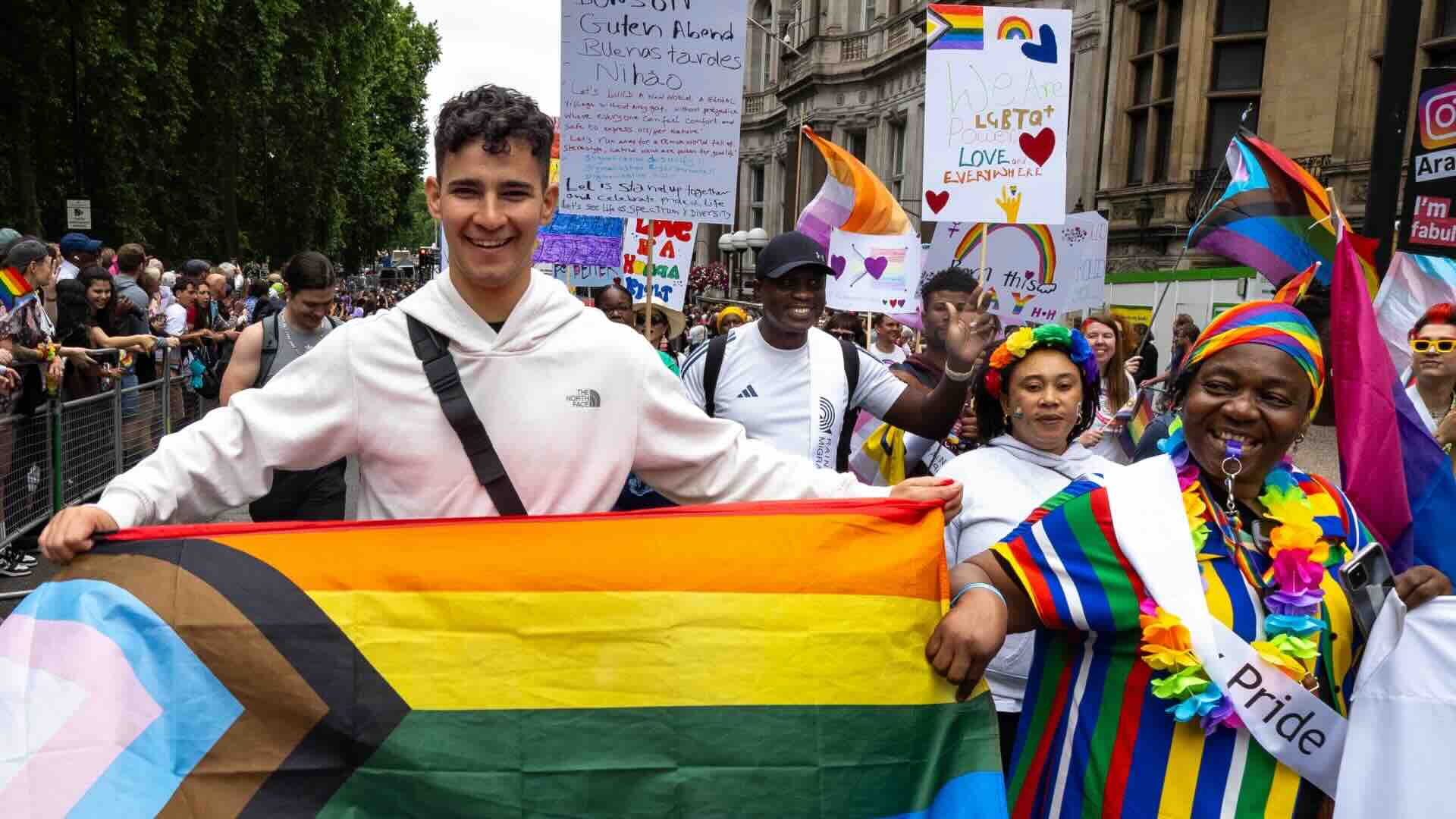The government must not take asylum rights from international students – LGBTQI+ lives are at stake
Minesh Parekh, policy and public affairs manager at Rainbow Migration, writes an op-ed for Attitude

This government recently announced a ‘crackdown’ on international students’ rights to claim asylum, even suggesting that it might defund universities if students claim asylum. This is a deeply concerning turn, that scapegoats international students, would shift border enforcement responsibilities onto universities, and one that will put people at risk of harm.
The “problem” the government claims to be addressing is people entering the UK as students and later claiming asylum. Responding to pressure from the increasingly racist and anti-migrant rhetoric in the media, the government is looking to drive down the number of people claiming asylum. This would set a really worrying precedent.
At Rainbow Migration, we support LGBTQI+ people seeking asylum, and have seen first-hand why someone might claim asylum months or even years after arriving. Many LGBTQI+ people who come to the UK as students only come out while here – having come from societies where persecution, abuse and culturally embedded prejudice against them are prevalent, and so they hid their sexual orientation or gender identity to avoid persecution. That act of coming out while in the UK can put them at risk of harm if discovered back home.
“These are people facing real danger” – Minesh Parekh, policy and public affairs manager at Rainbow Migration
According to The Times, the Home Office justification for this policy is that some people are ‘using the student route to make claims for humanitarian protection when circumstances in their country have not changed’. But this is a dangerous oversimplification.
Asylum can be granted for many reasons – including someone’s sexual orientation or gender identity. A country does not have to become unsafe for it to become unsafe for an individual.
Take, for example, a gay man from Pakistan who came to the UK to study. After his family discovered his sexual orientation, he received death threats. Another gay man from China was cut off financially after coming out, forcing him to leave his course and fear violence if he returned home. Others have faced threats of forced marriage after being outed.
These are people facing real danger and the government must not ignore this reality or attempt to deny people the protection they deserve.
“This crackdown ignores the complexity of people’s lives” – Parekh
International students may claim asylum for the same reasons anyone does: they need protection. This crackdown ignores the complexity of people’s lives, the many reasons that someone’s circumstances might change and – in pandering to hostile voices – could risk putting people in danger.
It is also concerning to see a crackdown on asylum claims from students from specific countries, like Pakistan and Nigeria, considering the risk of harm in both countries. The government’s own documents on Pakistan reveal that it knows people cannot ‘openly express their sexual orientation or gender identity for fear of discrimination and violence’, and that LGBTQI+ people in that country ‘are likely to face persecution or serious harm’; and similarly for Nigeria the government says that LGBTQI+ people are ‘likely to face a real risk of persecution or serious harm from the state’.
We also know from government data and from the people that we support that large numbers of LGBTQI+ people seeking asylum come from both Pakistan and Nigeria. Stats on asylum claims on the basis of sexual orientation show Pakistan coming top and Nigeria third, for both asylum claims and grants.
“We urge the government to reconsider this punitive move” – Parekh
We saw the consequences of this type of “crackdown” under the previous Conservative government. The former SNP MP Alison Thewliss went on a parliamentary visit to the Bibby Stockholm and shared her experience meeting international students who were held on the barge, after being ‘forced to claim asylum when the political situation in their home countries deteriorated.’
The Labour Party was elected on a manifesto pledge to ‘uphold human rights and international law’. They said they would end harmful policies like Rwanda and the use of barges because of their inherent violence. The Prime Minister said that he would ensure equality and human rights were ‘foundational… to anything that we do in government’.
A core principle of the 1951 Refugee Convention is people must not be sent back to a country where they could face persecution and be subjected to serious human rights violations. Attempts to restrict people from exercising their rights to claim asylum, risks violating their Convention rights and exposing them to danger – whether into horrific detention centres in this country, or risking harm in their country of origin.
At Rainbow Migration we urge the government to reconsider this punitive move. Rather than fuelling harmful stereotypes and ignoring real dangers that people may face back home, we need policies that offer safety and support, and which reflect the complexity of people’s lived experiences. We should not be seeing measures to restrict students or others from exercising their rights to claim asylum.
